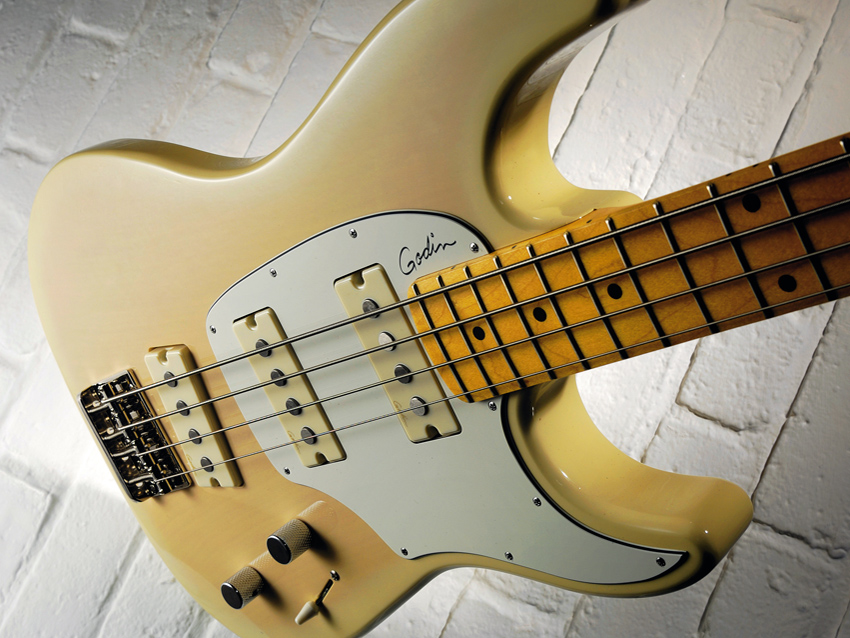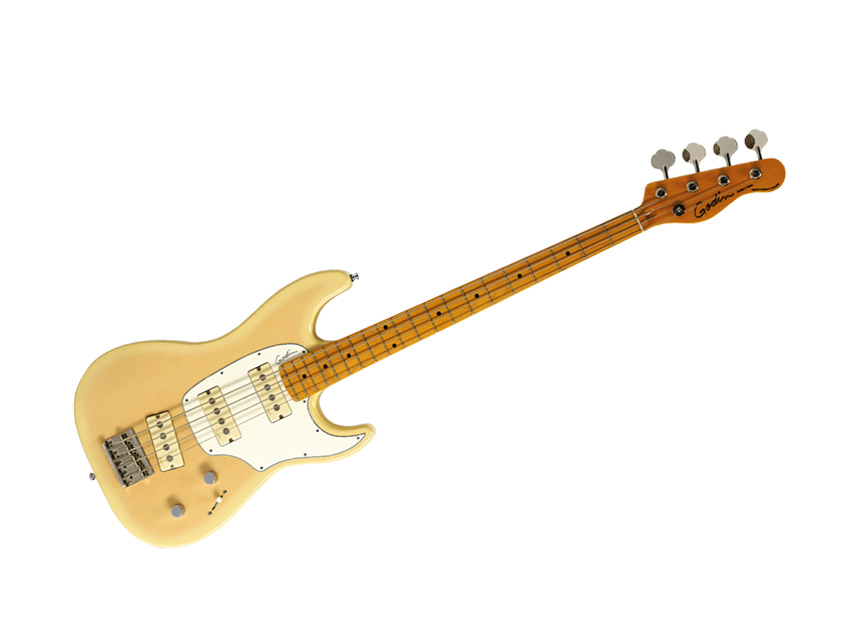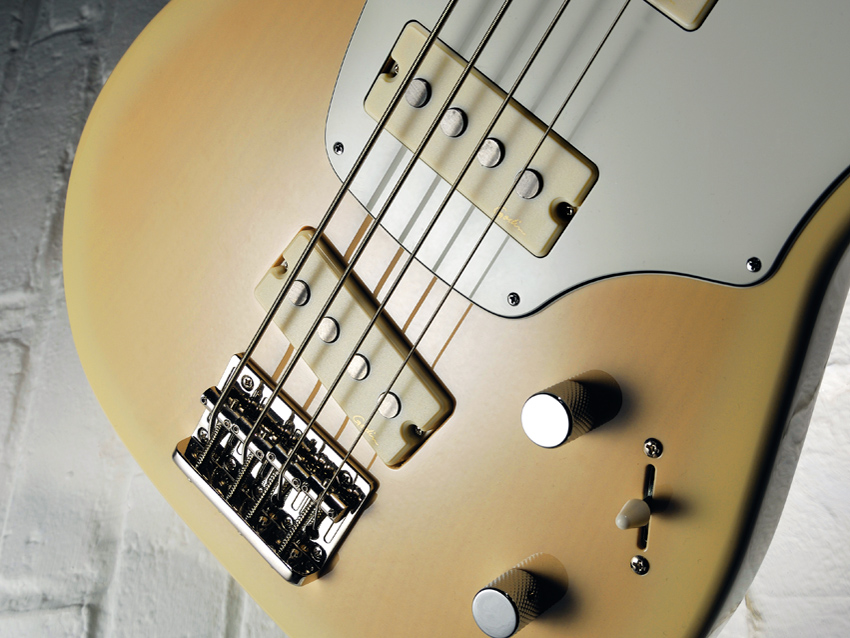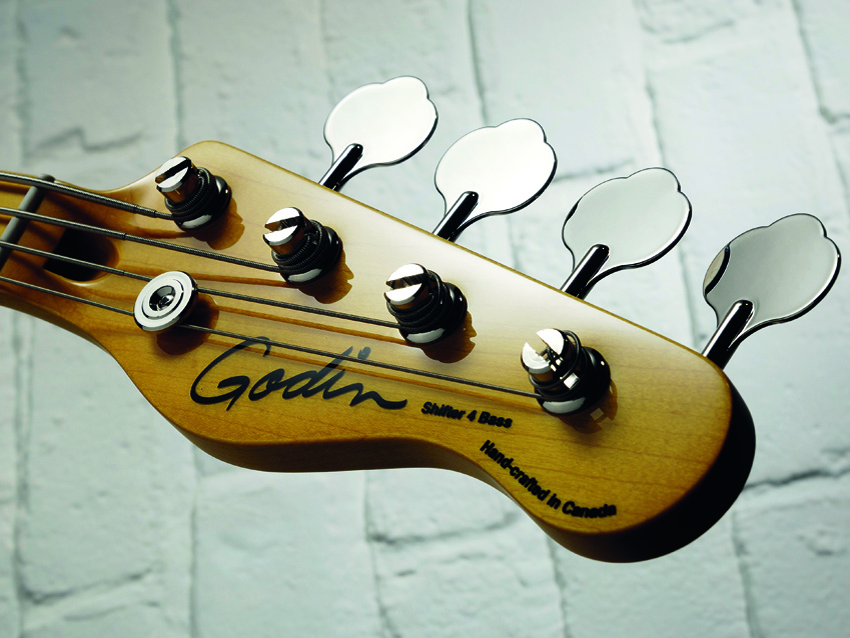MusicRadar Verdict
If you want something that feels, looks and sounds a little different yet has an air of 'rightness' about it, then this Godin as an excellent choice.
Pros
- +
Unusual design. Great funky and solid tones.
Cons
- -
The rather top-heavy strapped-on balance will annoy some players.
MusicRadar's got your back

Godin Shifter 4

Godin Shifter 4

Godin Shifter 4

Godin Shifter 4
It's always good to get an instrument that has a look, feel and sound all of its own, but at the same time projects a degree of familiarity. It's a tricky combination to pull off, but the Godin Shifter 4 achieves it rather well.
Of course, there's plenty to suggest Fender of yesteryear - it could almost be a long-lost gem from the fifties golden era - but what's going on with those pickups?
"You can't really go wrong here, as there's a warmth and presence that flows from this bass whatever pickups you select."
Basically this is a slab body design with a forearm chamfer and a rear belly cut for a little extra comfort. The body has something of a 'burst finish as it's translucent in the centre but becomes solid at the edge.
The two neck plates, through-body string anchor plate and control cavity plate are also all neatly recessed into the body - a particularly nice touch.
The neck is proportionally Jazz Bass-like, with an old 'D'-shape profile that offers more meat in the hand than the more common 'C'-shape of today. This somewhat vintage idea feels highly appropriate here and more mass means, in theory, more resonance. The downside is that strapped-on the bass is a tad neck heavy.
Vintage-style tuners and an improved raised tail bridge are the perfect choices here but, of course, the three soapbar-style pickups with their massive Alnico polepieces dominate the look of this well-proportioned bass.
The cleverly styled scratchplate helps to pull the whole thing together, but the Shifter is always going to get you noticed, albeit in quite a charming retro way.
Want all the hottest music and gear news, reviews, deals, features and more, direct to your inbox? Sign up here.
Sounds
The 'low-pull' designation on the Alnico magnets refers to their relatively low power to avoid them interfering with the strings' vibrations. The Shifter's master volume control is supported by a pull-switch tone knob and a Strat-style five-way selector switch.
The selector switch doesn't work in the conventional manner so we get, position one to five: neck/ middle, neck/bridge, middle, middle/bridge and bridge. The sixth tone, the neck pickup on its own, is accessed by pulling up that pull/push switch on the tone control.
The missing option is having all three units working together but with six distinct tones on call, plus the fine-tuning from the tone control, there's so much more to hand than a twin-pickup bass can provide.
The hollow tones produced from the neck/middle and middle/bridge pickup combinations are fruity and funky, while the super deep neck/bridge pairing is excellent. You can't really go wrong here, as there's a warmth and presence that flows from this bass whatever pickups you select.
Like all passive instruments, the tone control itself is limited in range but it makes sure that each note is heard. If you need a little more roundness, this is achieved by backing the tone control off.
This is a lovely bass to play and (dare we say) a huge leap forward for Godin bass design. The range of four- and five-stringers are offered with either a maple or rosewood fingerboards, so expect a generally brighter tonal response from the maple.
If you're the type of player who likes to stick with one sound then this may not be the bass for you, as it encourages you to experiment. But perhaps it's just the thing to get you out of a rut as whatever pickup or combination you choose you are guaranteed to get a good solid sound, and a few pleasant surprises thrown in.